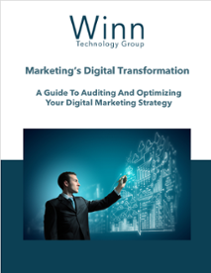 Implementing an organized content marketing plan while allowing your creative team the freedom necessary to do their best work can be a difficult balance to achieve. As a manager, picture yourself trying to micromanage Michelangelo while he was trying to paint the Sistine Chapel. It undoubtedly would not be the masterpiece it is today. Creative types need hard deadlines but loose guidelines to create truly great work. When you think of your content and design teams as artists, you can begin to understand how to manage them. Generally, artists appear to be disorganized, but each one has their own method for completing commissioned works on time. The idea is to present them with a goal and expectations and then allow them the freedom to let their creative talent take over. In this article we discuss what it takes to create unique and exceptional content marketing campaigns.
Implementing an organized content marketing plan while allowing your creative team the freedom necessary to do their best work can be a difficult balance to achieve. As a manager, picture yourself trying to micromanage Michelangelo while he was trying to paint the Sistine Chapel. It undoubtedly would not be the masterpiece it is today. Creative types need hard deadlines but loose guidelines to create truly great work. When you think of your content and design teams as artists, you can begin to understand how to manage them. Generally, artists appear to be disorganized, but each one has their own method for completing commissioned works on time. The idea is to present them with a goal and expectations and then allow them the freedom to let their creative talent take over. In this article we discuss what it takes to create unique and exceptional content marketing campaigns.
Content Creation
Company blogs should consist of far more than just written articles. In order for this to work you need a team with a diverse set of skills with each holding an expertise in a given discipline. Writers, editors, videographers, graphic artists and subject matter experts are all requirements of a top-notch creative team. Once you’ve assembled the talent, a blogging schedule can begin to take form.
Brainstorm and develop topic clusters based on your target keywords and allow your team to choose the subjects that fit their interests and expertise. People tend to do their best work when they’re creating something that aligns closely with their personal interests. Editors should give honest and constructive feedback with an eye on helping rather than criticizing. This helps to develop a mutual respect and aids in collaborative efforts for the extent of your professional relationship. Final drafts of any type of content should be run through the entire team and any last-minute changes should be discussed as a group. This ensures you put your best foot forward and the content you create has an impact and provides value to your target audience.
Premium content such as eBooks and whitepapers should be developed to expand on the ideas discussed in your blog articles. This gives you the opportunity to convert your readers into leads through the use of landing pages and forms. Premium content should show off your expertise and go much more in depth on a given topic than a blog post. Detailed research, facts and statistics should be gathered from reputable sources and cited throughout your work. Original images and graphics should be used to highlight points and maintain your reader’s attention.
Social Media
While social media is a great place to promote your blog articles, that should not be the only original content you’re posting to your company pages. A mix of entertaining, educational and promotional posts should occupy your feed each day. Some things to consider for inclusion are funny memes, inspirational quotes, industry facts, infographics, recent statistics, company information, community involvement, company photos, a variety of videos and your company’s blog articles.
Having a social media content calendar that outlines what you’re going to post a couple of weeks in advance will help keep your feed fresh and avoid repetition. In general, it is a good idea to have a single dedicated employee to run your social media accounts, but there should be input from your entire organization.
Hashtags and commentary on current events will make your pages appear to be up to date and help you capitalize on trending topics. Creating unique hashtags for your company will help your current followers locate your posts.
It is important that everyone in your company participates in your social media efforts and engages with your posts. This will help broaden your reach and show potential customers that your employees are confident and comfortable with your organization. If your own organization doesn’t have faith in your company, it is unlikely that your prospects will.
Content marketing is a big part of an effective inbound marketing strategy and has a tremendous impact on SEO. Your ability to be found online and attract website visitors is the basis for a successful inbound campaign. Having a documented strategy and the right people to implement it will determine whether or not you reach your goals.





